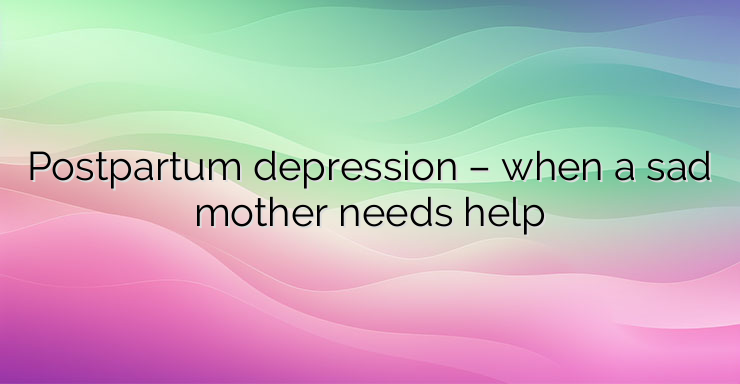The period after childbirth is amazing – it is filled with many new experiences, to which we do not always know how to respond adequately. Women in labor should start thinking already about the future of at least one more living being while they are still recovering from the physical fatigue of childbirth and the wear and tear of pregnancy. It is normal that sometimes at such a moment women feel emotionally shaken and saddened by what is happening around them. This is called the baby blues. This condition becomes pathological when the feeling of oppression remains for a long time. Then postpartum depression develops. Baby blues are experienced by more than half of new mothers. Usually between the third and fifth day, the woman starts to feel anxious, changes her moods quickly and cries for no good reason. These are natural feelings and a normal reaction to the newborn. Sometimes the emotions are so great that we cannot realize what exactly we are experiencing. This period subsides spontaneously in a few weeks. Although postpartum depression can start as a completely harmless emotional storm after childbirth, if it persists for more than a few weeks, it is no longer a natural state of mind and requires serious attention. According to global data, about 16% of young mothers experience depression after giving birth, and that is why it is called postpartum depression. When depressed mood and anhedonia (lack of interest or pleasure) persist for more than two weeks from a clinical point of view, this can be taken as a basis for more directed attention to the psyche. NEWS_MORE_BOX Besides these two main, persistent symptoms, there are others. Women feel sad, everyday activities and hobbies begin to not create satisfaction. They slow down their movements and speech, their memory declines, and making decisions becomes more difficult for them. Depressed mood affects sleep and appetite in both directions – either they sleep a lot and eat or they suffer from insomnia and don’t want to eat. Feelings of helplessness or guilt dominate thoughts every day. Suicidal thoughts are an extreme manifestation of postpartum depression. Postpartum depression cripples the bond between mother and child in the earliest moments after birth. This creates problems in the family; the environment for raising a child becomes unbalanced, as the lack of positive emotions is felt by every member of the family. Therefore, screening for postpartum depression in the form of interviews that include questions that actively assess current mental health is of great importance. If the result is positive, a consultation with a psychiatrist is necessary. In cases of postpartum depression, treatment is in the form of psychoeducation, in which women learn to follow the NEST-S program. This means eating a balanced diet (Nutrition), exercising (Exercise), sleeping well (Sleep), taking time for yourself (Time for self) and being supported by your significant other (Support).Cognitive, group therapy, light therapy and other behavioral mechanisms also have a positive effect. In case of more persistent and deep depression, drug therapy with a selective serotonin reuptake inhibitor (SSRI) is started.


Leave a Reply